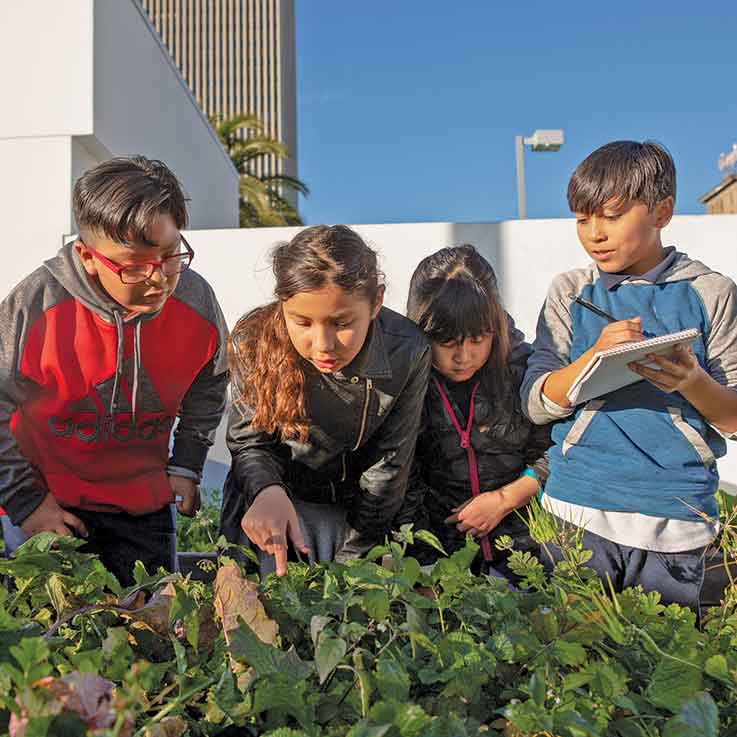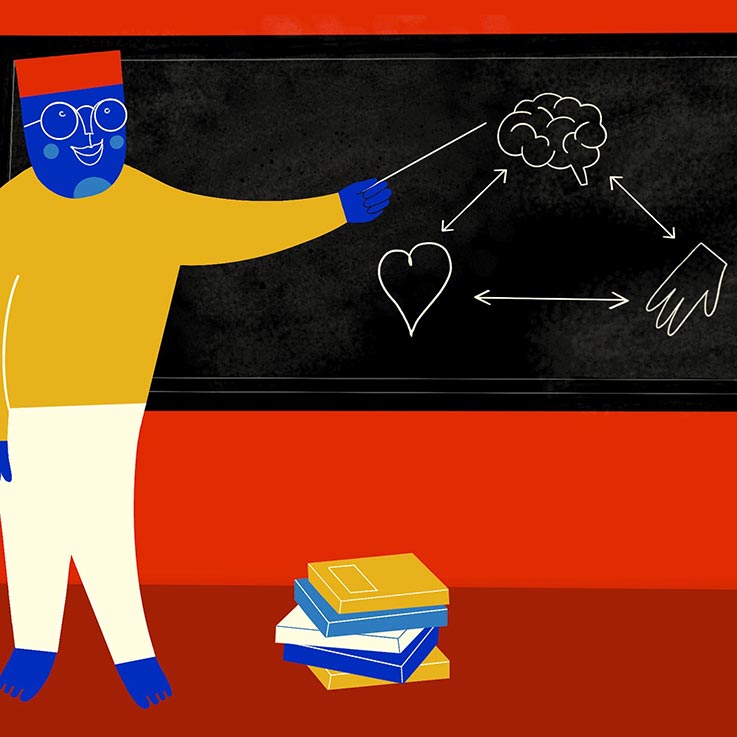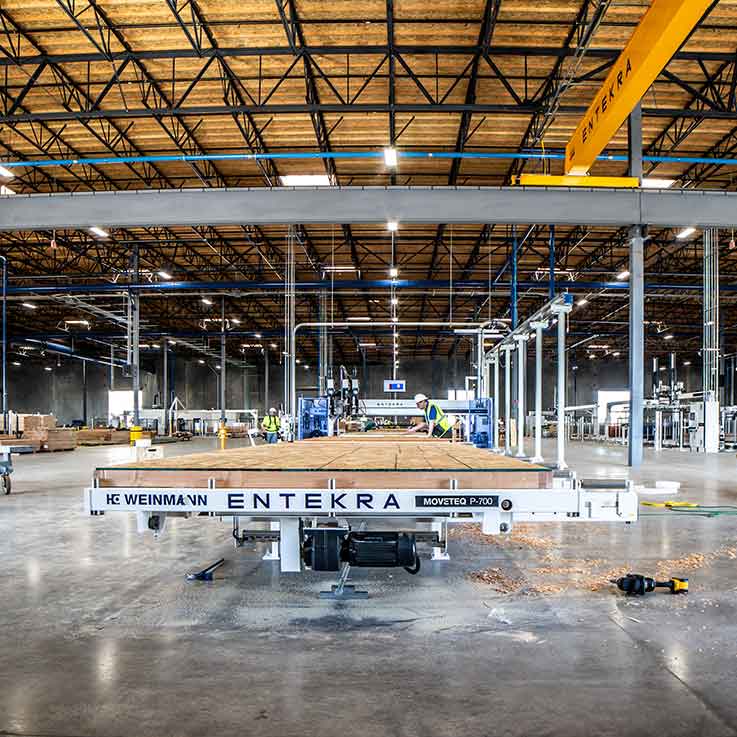
How Higher Education Can Support Local Ecosystems of Innovation
How Higher Education Can Support Local Ecosystems of Innovation
Supporting innovation should not be a top-down approach premised on straitjacketing program designs.
By Alexander Kolokotronis & Onyeka Obiocha Sep. 14, 2020
(Illustration by iStock/Ellagrin)
In the summer of 2017, Dwight Hall—Yale’s Center for Public Service and Social Justice, one of the oldest collegiate public service institutions in the nation—met with several community leaders in the Greater New Haven area for a series of listening sessions, to ask one question: What can Yale administrators do to facilitate town-gown programming that offers clear learning objectives for students while fulfilling specific community needs?
Time and time again, the same words came up: Reciprocity, Commitment, Love.
Innovating Higher Education for the Greater GoodThis series, presented in collaboration with Ashoka U, will share insights from leaders in higher education, presenting stories, strategies, and lessons in rewiring higher education’s purpose, relevance, and business models.FOLLOW THIS SERIES
Since higher education is increasingly playing a leading role in developing the next generation of policy and social entrepreneurs, we must develop a cooperative framework to guide them. Students need a working understanding of what on-the-ground work with neighboring communities looks like, and how to center community needs. The same stories were repeatedly told when speaking with community leaders, organizers, activists, and nonprofit leaders. We heard about students coming in under the guise of good intentions, but centering their own needs, research, and privilege without taking the time to understand the histories and traditions of the community or organization they wish to serve. In a few instances, we even heard about how students even created competing organizations based on the group they worked with. This anecdotal evidence went back decades, frequently from New Haven leaders with no connection within the University to find a just recompense.
This history is an opportunity to build value-based community engagement efforts. Organizations like the Yale U.S. Health Justice Collaborative have done an incredible job of encouraging students to better understand New Haven, even going as far as working with local leaders to host a New Haven tour for students interested in engaging with New Haven. Models like these are crucial, especially at Yale, where based on age, educational attainment, and race, and ethnicity, the New Haven metropolitan area, is the most representative of the United States. If, as administrators, we can create an infrastructure for student projects to be informed by residents of the Greater New Haven area, that model can scale or be replicated almost anywhere in the country. This ambition drives Tsai CITY Engage, which is the community engagement initiative at Tsai Center for Innovative Thinking at Yale (CITY), providing opportunities for collaboration in economic and community development in the Greater New Haven area.
Our model is based around three core themes: knowledge sharing, developing a community of practice, and capacity building. Building outward from these ideas, our work ranges from creating an Economic Development Speaker Series and organizing a team of Economic and Community Development Coordinators to serve as interns and connectors for organizations working to develop a resilient entrepreneurship ecosystem in New Haven, to facilitating the project management of a participatory budgeting process.
These and other efforts have shown us that supporting innovation should not be a top-down approach premised on straitjacketing program designs. While students' needs are often centered on creating a low-risk, color-by-numbers, style of replicable programming, such models don’t necessarily allow community needs to be brought into the conversation during the planning stages. Innovation supported by higher education must be practice-based, and accordingly, must be led and continuously transformed by the lived experience of those we intend to help.
1. Knowledge Sharing
Folks in New Haven are already, informally, having these conversations, so the question has been how to be intentional and create spaces where new and ongoing practices could be built. How can individuals engage in conversations tapping into everyday experiences but also generate new skills? How can knowledge shared with attendees, in turn, be shared with those outsides of the room?
In response to the 2017 listening sessions, Dwight Hall and Tsai CITY partnered to launch the Neighbor In Residence (NiR) program. Through this program, we aimed to provide an avenue where New Haven leaders can share their knowledge of the structures and institutions of New Haven with students interested in launching a venture or working on a project in the City. In addition to being partnered with students, Neighbors would participate in biweekly progress meetings with an assistant director as Dwight Hall, as well as attend the inaugural class of the Social Innovation Lab at Tsai CITY.
Based on a model developed at Johns Hopkins, the NiR program compensated individuals who:
- have substantial experience in and a deep understanding of New Haven neighborhoods, nonprofit/social enterprise sector, and the sociopolitical systems,
- have prior or current participation in a leadership role in the New Haven community including community organizations and religious groups, and
- have lived in New Haven for a minimum of 10 consecutive years.
(The last requirement came directly from New Haven leaders, to discourage recent Yale graduates who chose to stay in New Haven from applying. Additionally, NiR’s were provided funding, mentorship, and programming to catalyze a community project of their own.)
We learned a great deal from every step of the process. On the initial phase of opening the application and recruiting the first cohort, we leveraged informal peer-to-peer networks to spread the word, and, anticipating barriers to entry for some applications, we provided an application they could pick up at Dwight Hall and complete by hand rather than through email. During the hiring process, we removed all identifying information and opened the judging pool to include members of the New Haven community whose opinions were widely valued in the city, yet for whatever reason may not have and a formal partnership with a Yale organization.
Seemingly small issues helped us re-think about how to provide a supportive infrastructure for partners from the New Haven area. For example, we underestimated their relationship (or lack thereof) for Yale. In order to build community among the NiR, we hosted monthly dinners where we would discuss imposter syndrome, how to provide critical feedback, and stepping into their own leadership. During these dinners, we learned the hesitation for the NiR’s to remain on campus after their office hours because they felt like security would be called on them, in response to that we provided each of them with a Yale ID.
From there, the learning continues. Based on what we learned from the NiR program and from Dwight Hall’s listening sessions, we launched Tsai CITY Engage in 2018, Tsai CITY’s community engagement initiative, providing opportunities for collaboration in economic and community development in the Greater New Haven area. To identify best practices—and to learn publicly—we began planning what became the seven-part Inclusive Economic Development Speaker Series, which ran from April to May 2019. A first step in bringing local practitioners together to foster community partnerships was not only co-sponsoring the series with The Community Foundation of Greater New Haven, Yale Law School’s Ludwig Center for Community & Economic Development, the Yale School of Management but using that collaboration to build outreach into distinct entrepreneurial, advocacy, and policy networks.
Our goal for the series was to create a space where neighborhood leaders, policymakers, New Haven residents, and Yale students could develop a common language on best practices occurring throughout various entrepreneurial and innovation ecosystems. Practitioners were brought in from coast-to-coast, providing detailed presentations and engaging in lengthy dialogue with lawyers, policymakers, local government officials, and community organizers from the Greater New Haven area. The performances included: converting businesses into various forms of employee ownership; developing ecosystems of worker cooperatives in Cincinnati, Ohio and Jackson, Mississippi; building community land trusts in New Orleans; community housing and social entrepreneurship in Los Angeles; social justice real estate development in Philadelphia; and a discussion of the Green New Deal from those involved in advocacy and ongoing policy construction. A key feature to the talks was providing a space for leadoff “community commentators,” who would directly pose dilemmas and ask questions to presenters, and in so doing, give a transition to a more active conversation with the audience. When Tsai CITY co-sponsored a discussion of the ways New Haven’s nonprofit industrial complex perpetuates white supremacy (Paved with Good Intentions: White Saviorism and the Non-Profit Industrial Complex), for example, we put Jordan Flaherty (who has written extensively on white saviorism) in conversation with New Haven community activists who could talk directly to the structures and opportunities in New Haven, but prior to the talk, we held a private meeting at the Community Foundation of Greater New Haven with some of the top nonprofit leaders in the Greater New Haven area to discuss the funding structures, programs, and systems that need to be addressed at the ecosystem level in order to move forward. From these numerous conversations we sought to move into advancing concrete projects.
2. Community of Practice
Drawing on the work of Etienne and Beverly Wenger-Trayner, we conceptualize communities of practice as “groups of people who share a concern or a passion for something they do and learn how to do it better as they interact regularly.” Members of a community of practice are practitioners who develop a shared repertoire of resources: “experiences, stories, tools, ways of addressing recurring problems—in short a shared practice.” In the interest in moving from conversations in New Haven to advancing concrete projects, we hired a team of students to serve as Economic and Community Development Student Coordinators. As we brought the Coordinators into shared spaces, we and they in turn would develop into a community of practice as outlined above.
Each Student Coordinator was assigned to work with a different organization within New Haven, working on an aspect of inclusive economic development, ranging from the Yale-New Haven Hospital and working with neighborhood leaders to explore community programming to taking first steps around cooperative purchasing and helping to construct participatory planning processes around economic development. Through a series of dinners, our team of Economic and Community Development Student Coordinators shared knowledge and shared insights from the field: a more in-depth understanding of local histories, acquired repertoires, and tips in engaging with stakeholders in and outside of Yale.
As multiple stakeholders aligned, it increasingly became possible to bring together individuals that would engage in the day-to-day and week-to-week operations of the work. To greet, meet, and work together on such a basis with enough repetition would result in developing a community of practice. And since developing a community practice is meant in two cross-fertilizing ways, it became pluralized as communities of practice. Dense populations of training allow for resilience, the shared space—and thereby shared commitment to that shared space—that in part fuels the carrying on something like participatory budgeting (PB) in the face of a pandemic.
3. Capacity Building
Following the Inclusive Economic Development Speakers Series, a number of organizations reached out to Tsai CITY, excited to operationalize practices they had learned about in the shared space. For example, since we were impressed by the democratic financial investment model of the Boston Ujima Project, Tsai CITY decided to work with the Greater Dwight Development Corporation (GDDC), whose impactful investments in the Dwight neighborhood range from the Edgewood Education Corridor to developing the Dwight Place Shopping Plaza with a major grocery store providing union jobs.
A student hired through Tsai CITY Engage was assigned to act as the lead designer of the process, convening multiple stakeholders in an iterative form. Together the student and the GDDC decided to pivot to introducing a participatory budgeting (PB) process, with its track record in youth leadership development and as Ujima was not quite yet in the cards. Similar to Ujima, PB is a multi-step process where people gather in idea-collection assemblies, develop proposals, put proposals on a ballot, and finally take a direct vote.
With alignment around youth development, a school-based PB process was suggested for Augusta Lewis Troup School. The boundaries here would be far clearer, and thereby serve as a basis upon which to design the process. Another advantage was that the process would not have to be created from scratch, and those leading the process would have examples to draw from. Such experiences and examples have enabled the formation of a PB in Schools Guide. Bringing attention to the existence of both other examples of PB in schools as well as a concrete practitioner guide constituted another step in demonstrating to the GDDC that it could be assured in its role as a fiscal sponsor. Specifically, that PB in schools is a feasible and reliable project. With this demonstration, the GDDC would not simply relegate itself as a fiscal sponsor. Leveraging its standing and deep local knowledge it would help identify a specific site—meaning an actual school along the Education Corridor—for conducting the PB process.
A lesson emerged from this experience: carefully bound projects you are engaging in order to be clear about its scope. In the case of PB, this meant not remaining fixated on “the community,” but listening to partnering stakeholders’ desires and needs, which led us to “the school” and alignment of goals. In turn, the Tsai CITY Engage student was able to identify who would be the core and auxiliary field practitioners; in this case, this was teachers, and through conversation with the principal it was determined that sixth, seventh and eighth grade students would be the constituents of the process, generating ideas, developing proposals, constructing a ballot, and taking a final vote.
With the PB process launching in late February, much progress was made and momentum was gathering when COVID-19 hit. But rather than PB being dropped, the teachers at Troup moved the process the forward, a true and definitive marker that we were all together successfully building capacity. It was an example of adaptive management, where stakeholders take “an intentional approach to making decisions and adjustments in response to new information and changes in context.” More specifically, the adjustments made by teachers at Troup was “not about changing goals during implementation, [but] about changing the path being used to achieve the goals in response to changes.” At Troup, capacities in organizing and running a PB process extended as far as teachers and students being able to utilize the process as an exercise in resiliency. In the face of a pandemic, the process was completed and projects were selected by students to improve the school. This included students voting to purchase equipment for recess in looking forward to safely returning to and playing in the school they enjoy.
Organic Shared Commitment
We didn’t begin this process with an end goal in mind. And by starting with a listening session, the insight we gained into the hopes and dreams of New Haven leaders also, more importantly, allowed us to create an ad-hoc accountability council, a group of individuals who were dedicated to holding us to the highest of standards. In doing so, Tsai CITY Engage operationalized a value-based approach to learning from and engaging with New Haven’s entrepreneurship and innovation sector. Those values we base our approach on are providing mutually beneficial pathways to sharing, to knowledge sharing devoted to mutually beneficial channels to sharing lived and learned experiences, building a community of stakeholders that are consistent in their approach to learning, and deploying resources to empower those closest to the problem to be the architects of the future.
Project managers and administrators can only do so much and should only do so much, especially if capacity-building is a central goal: constructing a shared space of core and auxiliary field practitioners to develop themselves as a community of practice is key to fostering an organically shared commitment to whatever collective project in question.










